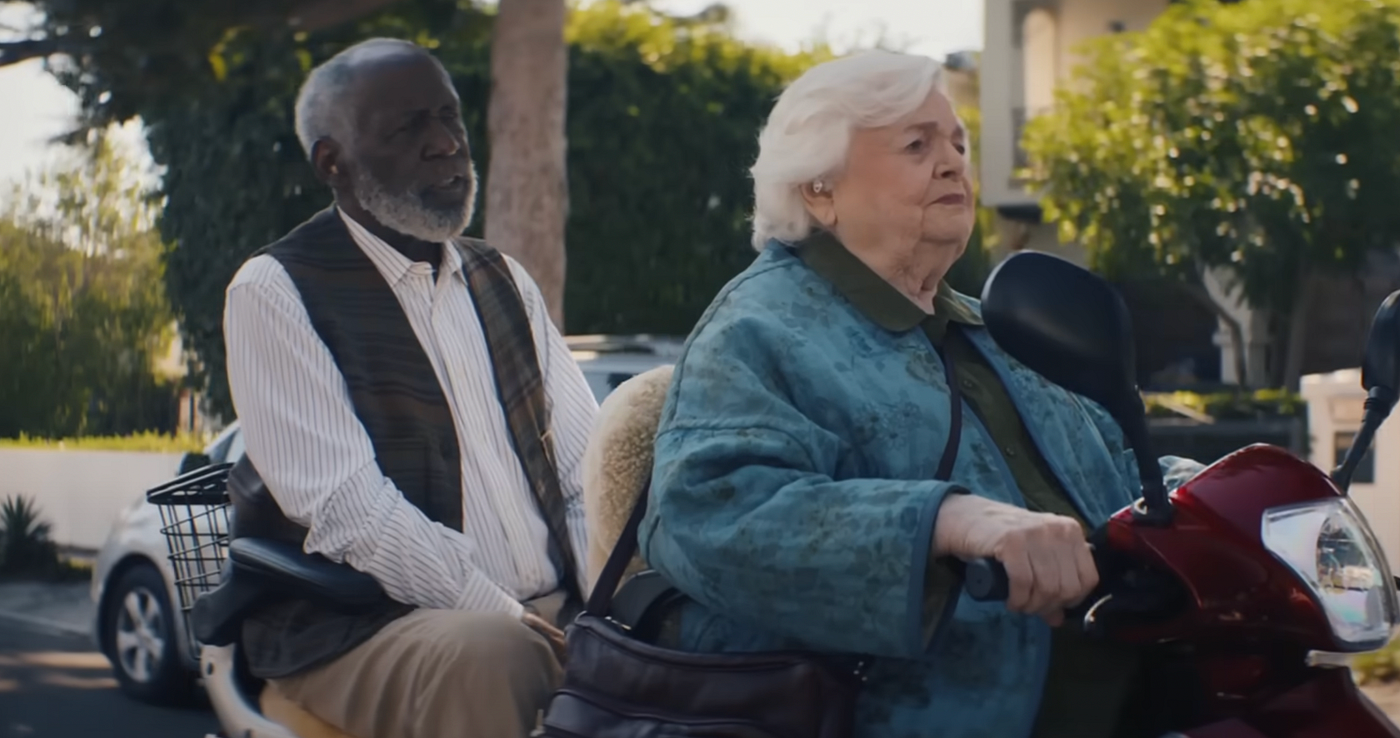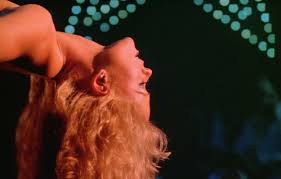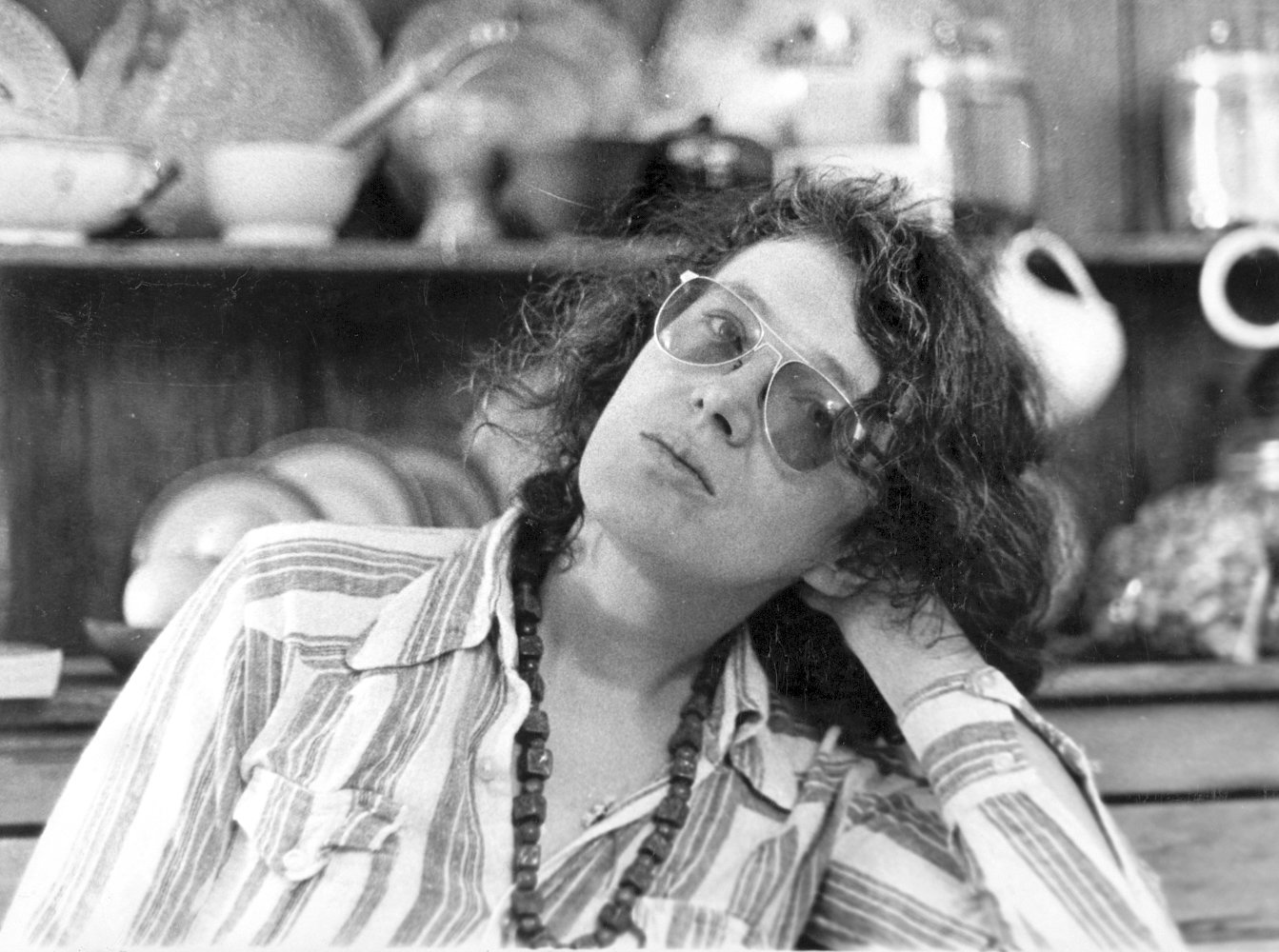At the Angelika Village East Theater in New York City, I went to see
The Substance, a 2024 film written and directed by Coralie Fargeat (
Revenge), starring Demi Moore as fading actress-turned fitness TV host Elisabeth Sparkle, who, decades after she won an Academy Award, is being pushed out of her fitness TV show by her sexist boss (Dennis Quaid), telling her she's 50 and aged out of being seen as attractive for a media audience. As she walks down a long red hallway, she passes by blown-up photos of her through the decades, done-up magazine style from the 1980s to the 2000s, and her huge and cavernous apartment is also adorned with a giant portrait of her younger self in fitness wear, a shrine to her Hollywood peak of beauty.

She sees a billboard of herself being torn down, gets into a car accident, and a handsome young orderly passes her a flash drive labeled "The Substance" with the note "It changed my life." She plugs the flash drive in her computer, and an ominous male voice narrates a cell-replicating process (the film opens with a syringe being injected into an egg yolk, and the egg yolk reproducing an identical yolk out of its side, like in a mitosis kind of way), explaining how she and her other self will switch off every seven days, using a scientific process with a syringe kit and bags of liquid food for each body when not being in use, and the other self will be her younger, more conventionally attractive self, and that they are the same person even when split apart.
Elisabeth is at a desperate point in her life, so she orders it, and goes to a secret back alley location, where the gate won't open the whole way and she has to crouch under it, using a key card to get the package, and the process is painful, with her back splitting open violently and another person climbing out of her body. The other person is a younger, dark-haired beauty (Margaret Qualley), with the same consciousness as Elisabeth, who is now curled on her bathroom floor as a shell of herself, and the other woman, who names herself Sue, goes to audition for Elisabeth's old spot on the fitness show and immediately gets it because she radiates youth and sexiness and beauty, wearing 80s workout gear, and the show is re-tooled to be much more sexualized, with a lot of focus on her butt, doing suggestive positions, and the movie goes with this heightened reality, hardly anyone questioning where Sue came from, and her becoming an immediate TV star.

But when they switch off, Elisabeth, having no job, and seemingly no hobbies or any friends and family, just spends her time alone at home, bingeing on food in front of the TV, trashing her apartment, and waiting to switch off so she can be young and dazzling. And the black market operation behind The Substance (which purposely stays vague on who runs it or where the substance comes from) gives strict rules in bold lettering about sticking to the seven-day rule, no exceptions, but, as Sue enjoys her popularity, she starts bending the rules and not wanting to switch off at the seven-day mark, thinking "Just one more day won't hurt." And Elisabeth starts resenting Sue for all the fun and celebrity she gets to enjoy, and even if they technically are the same person, and not conscious at the same time, they do start rivaling with each other to be the matrix, or the alpha, or the one in charge. And the ones who caused all of this are the sexist media and society who pushed Elisabeth out when she was deemed "old" and "unattractive," pushing her to extremes to regain her youth and vitality in a cartoonishly misogynist world.

This movie is highly stylized, with a satirical sense of humor, with loud synths, big title cards for both Elisabeth and Sue, being overly flashy, and it's a lot of fun to watch. It's the most interesting role that Demi Moore has had in years, a comment on the sexist treatment she received from the media in the 1990s for seeming too intimidating, too sexual (especially with 1996's Striptease), and seen as too unlikable and "bitchy." Moore was essentially pushed out of her movie star career, though she produced the Austin Powers and Charlie's Angels movies, and appeared as the villain in Charlie's Angels 2: Full Throttle in 2003, seen as her "comeback" at the time. She was also mocked for her marriage to Ashton Kutcher because he was 15 years her junior, though bigger age differences with older men and younger women wouldn't be criticized as much. She continued acting in films, occasionally getting some critical acclaim (Margin Call), but this film does feel like full circle of her playing a movie star who is largely seen as past her prime. With the physical challenges of the film, especially as the movie gets more bizarre and over the top, she shows a lot of ferocity to throw herself into the weirder aspects of the film, and deserves all the acclaim she's gotten.
Margaret Qualley, a dancer turned actor, who comes from a Hollywood family (her mother is model turned actress Andie MacDowell) has the talent of being both a charismatic dancer with captivating looks, and an interest in taking on offbeat movies like Poor Things, Kinds of Kindness, and Drive Away Dolls. She is fun to watch as someone who can play up being sexy and flirty with ease, but also excels with her frustration with Elisabeth sabotaging her life out of jealously, and she really shines in the finale as she takes things much further even when everything is falling apart.
Fargeat's film really takes a lot of influence from weird, batshit horror films like Basket Case, The Fly, Society, as well as influenced by Dr. Jekyll & Mr. Hyde, The Picture of Dorian Gray, and John Frankenheimer's Seconds, and a lot of use of practical effects, which does give the film more of a visceral feel, especially as body parts decay or fall off, or the cell reproduction process out of Elisabeth's back, and heavy prosthetics as Elisabeth changes over the film. There have also been TV episodes of horror anthology shows like Tales from the Crypt and the 1980s version of The Twilight Zone where women go to extremes to fight aging and seeing their beauty fade, seeing youth and attractiveness as their worth and commodity in life, and with major side effects if they go too far or don't follow the set rules. And, as Fargeat is a French director, the film does share similarities with other French horror movies like Raw and In My Skin, and it does mix satirical feminist commentary on women only being valued for their youth and beauty with over the top horror comedy from B-movies. It's a really great movie, it won Best Screenplay at the Cannes Film Festival, and is a standout of this year.



.jpg)













.png)
.png)



























